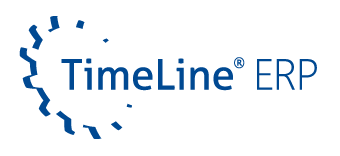ERP developments enable new production technologies
The roots of Enterprise Resource Planning (ERP) go back several decades. In the 1970s, the first versions helped large companies with material requirements planning. Material Requirements Planning (MRP) is the forerunner of today’s modern ERP systems. In the 1980s, systems began to add production planning and control capabilities. As a result, their use was no longer limited to the industrial sector. It was not until around 2000 that the ERP system we know today was created. Sales, accounting and human resources modules are integrated. The term “ERP” was coined by Gartner, the well-known provider of market research and analysis. But what ERP developments can we expect in the near future?
Although there are still companies that use many different applications – so-called isolated solutions – according to a Bitkom survey, one in three German companies uses ERP software. Another 21% are even planning to introduce it. Today, ERP systems are true everyday heroes, whether in small or large companies. As the backbone of information technology, they have become indispensable in many companies. Consisting of various modules linked by a common database, they enable better collaboration. ERP provides visibility, handles routine tasks, and optimizes operational processes. Real-time information allows better decisions to be made and customer needs to be met.
ERP developments in the coming years
The development of new ERP software is both more feared and more necessary than ever. On the one hand, intervening in a complex system is always risky. On the other hand, evolution is important because business processes change over time. To remain useful, ERP must be able to keep pace with these changes. The market and needs change quickly, so staying current is not easy. Here are the top ERP developments.
Industry 4.0 and the Internet of Things as key challenges
Digitization is becoming increasingly important. In this context, we hear the term Industry 4.0 all the time, but what does it really mean? After mechanization (Industry 1.0), mass production (Industry 2.0) and automation (Industry 3.0), Industry 4.0 marks the beginning of the fourth industrial revolution. New technologies are boosting production for companies, creating growth opportunities and competitive benefits. The basic idea behind these developments is the creation of “smart factories”. Automation is optimized by intelligent machines that communicate and exchange data independently.
Industry 4.0 goes hand in hand with the Internet of Things
The Internet of Things (IoT) is a logical evolutionary step. Up to now, it has been mainly us humans who have exchanged information with each other. In the future, however, machines and inanimate objects that are not normally connected to the internet will independently exchange data with each other. When connected to a network, they will be able to communicate with other systems in the chain. The IoT is the bridge between the physical and digital worlds and is an integral part of many Industry 4.0 projects. According to the study “Wettbewerbsfaktor Analytics im Internet der Dinge” by the University of Potsdam, 43.5% of the companies surveyed stated that they have actively addressed the issue of the Internet of Things. 15% have integrated IoT applications into their existing processes to increase efficiency, with the main area of application being process monitoring. The great potential of the Internet of Things can be seen in the manufacturing industry.

Big data from the Internet of Things
Imagine a machine that can send its performance data directly to the manufacturer via the Internet. If, for example, a component or value is not working properly, the machine could inform the operator and send a message to the manufacturer, whereupon an employee would deliver the specific spare parts. Smart factories are an evolution of this basic idea. For example, a manufacturing plant could start production automatically when it receives an order. However, the global volume of data is also growing in line with these ERP developments. In the context of Industry 4.0, data is generated in particular by machines, transport equipment, workpieces and products. It is often measurement and sensor data that is collected automatically. There are two aspects to big data. One is the ever-increasing volume of data, and the other is the IT solutions that help companies manage this data.
What role does ERP play in this development?
Until now, most ERP systems have tended to be used within the company. The need for complete and transparent data is growing. The ERP system serves as a central hub and will become even more important as an integration platform. Customer information and product data will be linked with production and logistics data from the manufacturing level. The Internet of Things is becoming an additional source of data. As the number of applications grows, so does the need for interfaces. The ERP system also plays an important role in smart factories. Almost all business processes can be supported and external systems and platforms can be integrated. Important company data is managed and stored appropriately. It is not yet clear to what extent these developments will be adopted by companies. A custom, unified database is particularly important to ensure that all processes run hand in hand. Without an intact IT infrastructure, the ideas cannot be realized, as there are many business processes that need to be managed.
ERP grows beyond itself – grow with it!
If you would like to learn more about ERP developments or the full range of TimeLine ERP features, please send us a message using the contact form, write to [email protected] or contact our sales team at +49 212 230 35 200. We look forward to hearing from you and will be happy to advise you!




